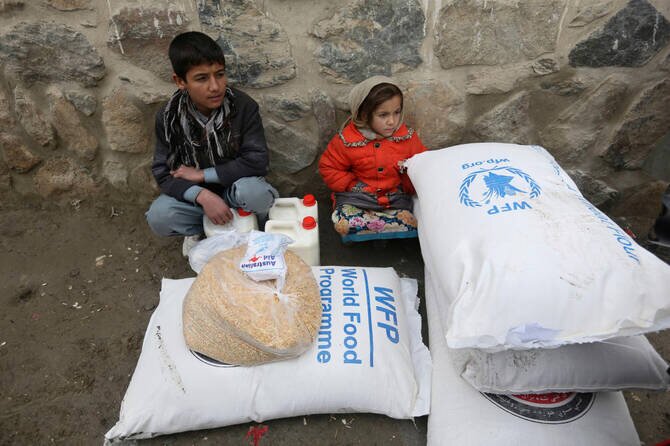
UN's World Food Programme Faces Funding Crisis, Warning of Rising Hunger
The World Food Programme reports that funding cuts threaten to push nearly 14 million people into emergency levels of hunger across six countries.
The United Nations' food aid agency, the World Food Programme (WFP), has issued a dire warning concerning funding cuts that are severely impacting its operations in six countries.
According to a new report by WFP, these disruptions threaten to push nearly 14 million individuals into acute levels of hunger, marking a significant escalation from previous years.
Historically one of the UN's most-funded agencies, WFP now finds itself grappling with an unprecedented funding shortfall.
The primary cause cited is a reduction in financial contributions from key donors, notably including the United States under the Trump administration and other Western nations.
This decline has resulted in an expected 40% decrease in overall funding for the year, with projections indicating a budget of $6.4 billion—down from last year's substantial $10 billion.
The agency warns that without adequate support, it faces the loss of decades of progress in combating hunger, an issue already at a global record high.
Currently, 319 million individuals are experiencing acute food insecurity, with 44 million of these cases representing emergency levels.
In addition, famine has been declared in Gaza and Sudan, further exacerbating the crisis.
In countries such as Afghanistan, where the situation is particularly dire, less than 10% of those facing food insecurity are receiving assistance from WFP, underscoring a critical shortfall in resources to meet even existing needs.
The funding shortfall also affects other major donors' contributions and has resulted in widespread cuts across various UN agencies, including USAID.
The executive director of WFP, Cindy McCain, emphasized the gravity of the situation, stating that millions are witnessing their lifeline to food assistance dwindle.
She called for urgent action to bridge the funding gap between what is required to combat hunger and what can currently be afforded.
This crisis highlights a pressing concern not only for international aid organizations but also for global health and humanitarian efforts, emphasizing the need for sustained support from donors to address record levels of food insecurity worldwide.
According to a new report by WFP, these disruptions threaten to push nearly 14 million individuals into acute levels of hunger, marking a significant escalation from previous years.
Historically one of the UN's most-funded agencies, WFP now finds itself grappling with an unprecedented funding shortfall.
The primary cause cited is a reduction in financial contributions from key donors, notably including the United States under the Trump administration and other Western nations.
This decline has resulted in an expected 40% decrease in overall funding for the year, with projections indicating a budget of $6.4 billion—down from last year's substantial $10 billion.
The agency warns that without adequate support, it faces the loss of decades of progress in combating hunger, an issue already at a global record high.
Currently, 319 million individuals are experiencing acute food insecurity, with 44 million of these cases representing emergency levels.
In addition, famine has been declared in Gaza and Sudan, further exacerbating the crisis.
In countries such as Afghanistan, where the situation is particularly dire, less than 10% of those facing food insecurity are receiving assistance from WFP, underscoring a critical shortfall in resources to meet even existing needs.
The funding shortfall also affects other major donors' contributions and has resulted in widespread cuts across various UN agencies, including USAID.
The executive director of WFP, Cindy McCain, emphasized the gravity of the situation, stating that millions are witnessing their lifeline to food assistance dwindle.
She called for urgent action to bridge the funding gap between what is required to combat hunger and what can currently be afforded.
This crisis highlights a pressing concern not only for international aid organizations but also for global health and humanitarian efforts, emphasizing the need for sustained support from donors to address record levels of food insecurity worldwide.